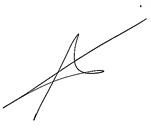7 HIGHLY EFFECTIVE HABITS

“One plus one equal eleven.”
‘The Seven Habits of Highly Effective People’, by STEPHEN COVEY.
‘The Seven Habits of Highly Effective People’, by Stephen Covey, is undoubtedly a best seller in the field of the most consulted business books worldwide.
Covey, from an empirical observation, gathers the seven habits that are worth working hard, both professionally and personally, but also warns us that before incorporating them to our routines, it is essential to understand which principles lead us in reality, in life.
The first habit, proactivity. Be proactive, and develop the habit of acting rather than reacting: be the cause instead of waiting to be effect; move on, think ahead, take risks instead of waiting for situations of change that are imposed, be your own cause of change.
The second habit is to have a purpose, a goal, and visualize it, or as Covey says, “Having a mission in life”. What is your mission in life? Making people laugh? Transmit knowledge? Is it serving? You’d better define your mission because this will help you sharpen your perceptions and also your principles and values.
The third habit is to set priorities, is putting first things first. Differentiating what is really important from what it is not, knowing how to be selective in how we manage our time so as what has to be first goes first, and you go ahead and not waste time on tasks or functions that do not provide any value.
The fourth habit is to think win-win. Your income, your success does not have to rely on the failure of others. He -Covey- says: “Most people think in dichotomies: strong or weak, easy or hard, win or lose, but this kind of thinking is fundamentally flawed. It is based on power and position rather than on principles. The win-win paradigm lies in the idea that there is abundance for all and that the success of a person does not mean the loss for others”.
The fifth habit is to try first to understand, then to be understood. “There cannot be influence without empathy”, Covey says, lucidly. From empathy you can get in each other’s skin and dialogue comes much easier when you understand and thus, you can more easily transform realities.
The sixth habit is to practice synergy. There are always third alternatives to creative options that do not appear in the first analysis. The problems cannot be fixed at the same level of consciousness in which they are created.
The seventh habit is “shaping the saw”, i.e., to improve our efficiency it is necessary to balance the physical, mental, spiritual and social dimensions of our life. If you are a workaholic and obsessive person, and you hardly take care of your body, sooner or later you will end up burnt out and all that efficiency will derail very quickly. If you are a person who may look after your looks, but often neglect your emotional dimension, you will be lonely as a cloud and, therefore, you will be unhappy. So we have to compensate for the different dimensions of our existence to create a balance. Let us start working on it.
An inspiring and useful reading by an author, Dr. Covey, who died on July 16th, 2012, but whose message still inspires and will inspire anyone looking to improve as people and professionals. A highly recommended book.
Hugs,
Álex Rovira


Para dejar un comentario en cualquiera de los artículos del blog deberás identificarte con tu perfil de usuario de Facebook y podrás decidir si quieres que se publique en el Sitio Web y además en tu muro de Facebook. SID & FORTUNE, S.L.U. es la Responsable del Tratamiento de tus datos, con la finalidad de moderar y publicar tu comentario con tu nombre. En ningún caso se publicará tu correo electrónico.
Tienes derecho de acceso, rectificación, supresión, limitación, oposición al tratamiento y portabilidad. Puedes ejercitar tus derechos en [email protected]. Más información en la Política de privacidad.